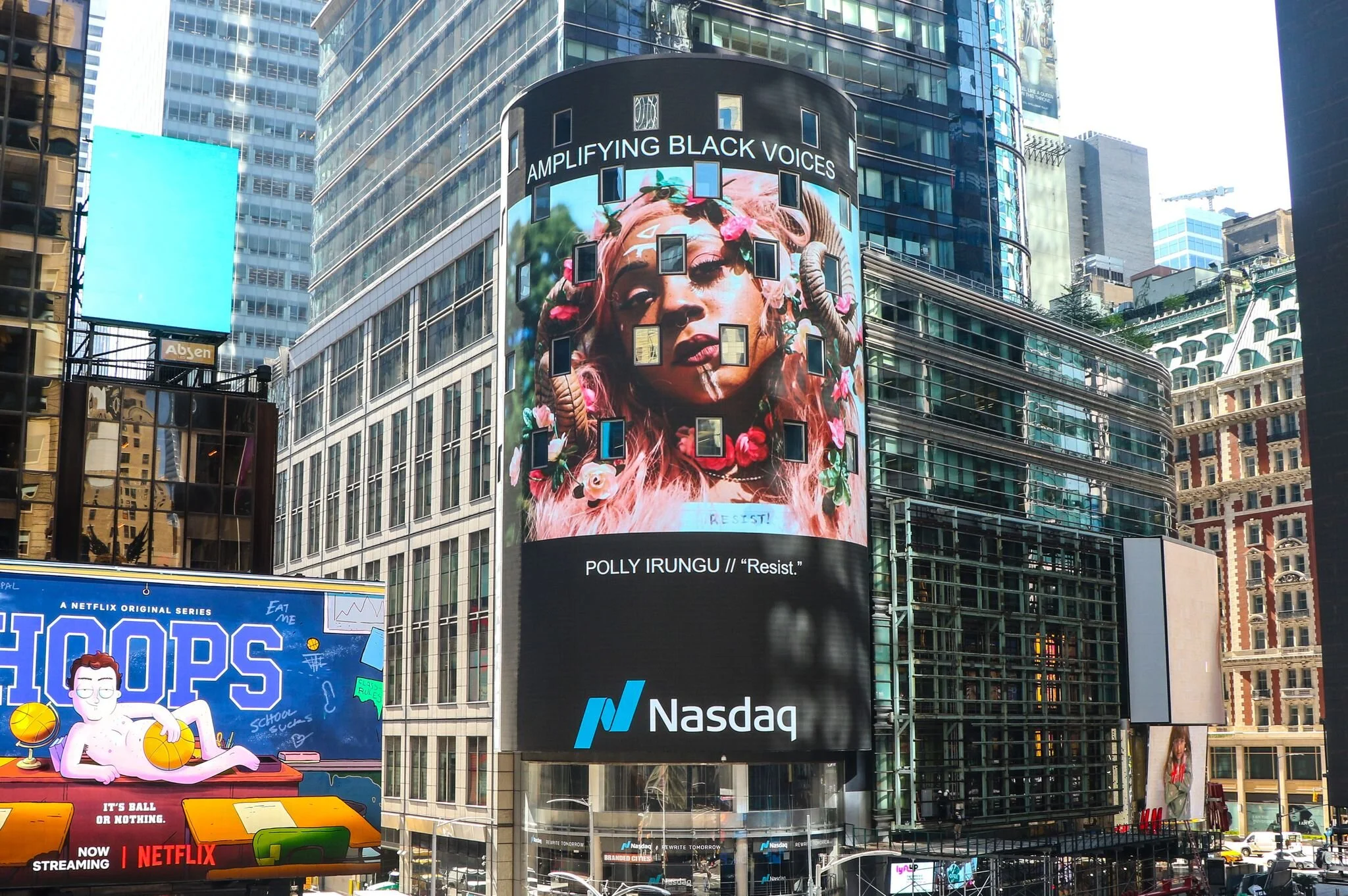Photographer Polly Irungu noticed the underrepresentation of Black female photographers within the industry when starting her career. Determined to break down hiring barriers and showcase the work of BIPOC artists, Polly created Black Women Photographers—an online community and database of Black women and non-binary photographers.
In addition to elevating the work of her fellow photographers, Irungu is a multimedia journalist, digital content editor at New York Public Radio (WNYC) and a self-taught photographer. Her work has been featured in Global Citizen, NPR, BBC News, The Luupe, MEFeater, Refinery29, The Washington Post, BuzzFeed, CNN, HuffPost, OkayPlayer and OkayAfrica.
Polly recently sat down with Photographers Without Borders (PWB) Founder Danielle Da Silva as part of PWB’s ongoing “Storytelling for Change” webinar series. Below are edited excerpts from the discussion, which touch on her inspiration to create Black Women Photographers, imagining the impossible, navigating a male-dominated industry and cultivating change.
Da Silva: What compelled you to start Black Women Photographers?
Irungu: I went to a predominantly white university with about 24,000 students, and out of those, only 300 students identified as Black. I didn't know any other Black photographers, especially Black female photographers. I could shoot almost anything on campus, but it was lonely and hard to navigate the space. As a white male-dominated space, the industry is tough because you have all these different barriers.
While I was on campus, I learned about the National Association of Black Journalists (NABJ). For me, that was my first time meeting other Black journalists, Black photographers and Black women in the field. I made a Twitter list called Black Women Photographers and added people whose work I saw come up on my timeline that inspired me.
Da Silva: You spoke about the barriers within the industry. Given everything that's happened in the last few months and year, do you feel there has been more support or actual hiring of Black women photographers?
Irungu: I have seen some changes, but it's about how long will that change last? Is it just temporary? We're in this moment; we're all thinking about it. We've had these conversations before. I think everybody is tired of repeating themselves and saying the same thing over and over again. So how long will this last? Will we be having these conversations at this time next year, or are we only going to be noticed during different months that amplify us, like Black History Month? Will that be the only time that we get thought about again for different campaigns, covers and magazines? I've seen some changes, but I don't know how long that change will last.
Da Silva: You said before that you didn't imagine this path for yourself. I think imagination is key to bringing anything to fruition. It's the key ingredient to getting people to even dare that they could take up a space.
Irungu: I completely agree. It's hard to imagine what you don't see. If you don't have that representation, or you're not used to seeing Black photographers getting billboards or having spotlights in Times Square, why would you ambition it? Now, I can help others to imagine this for themselves as well. Now, I know that this is possible, that this could happen for me. And now, I'm thinking, what else can be done?
To watch Polly Irungu's entire webinar, join our community by becoming a PWB community member.
As a member, you'll have access to all "Storytelling for Change" sessions featuring notable photographer storytellers from around the world.




